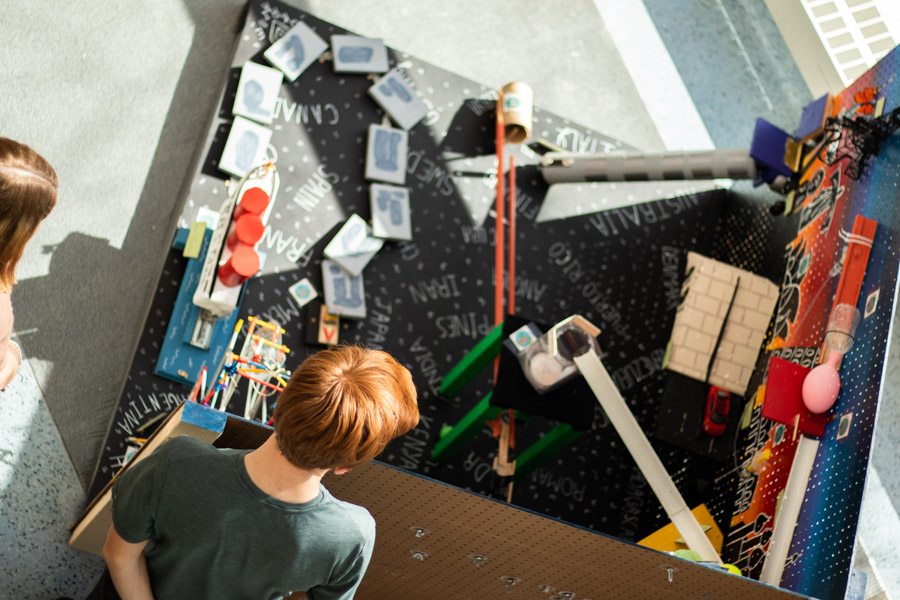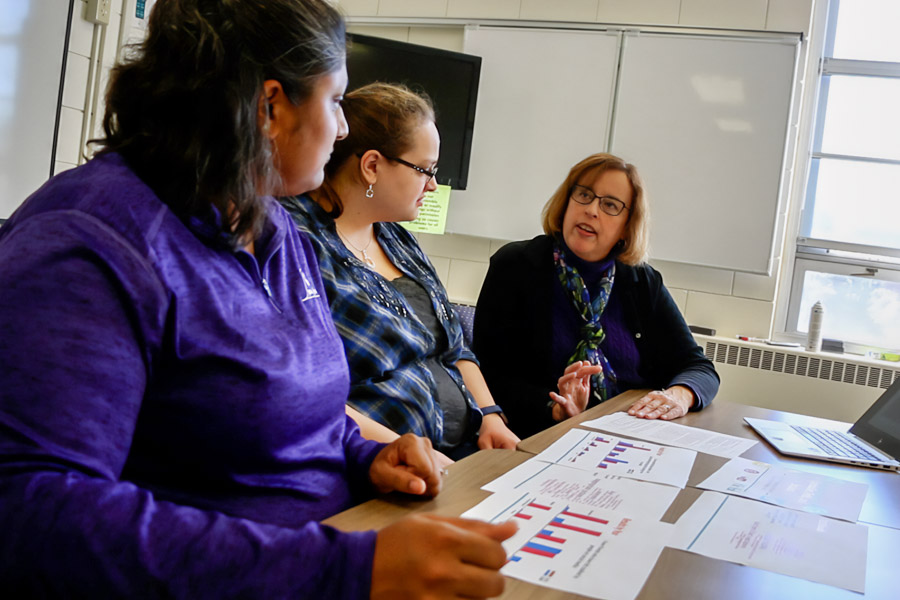Funding for Research
Doing research isn’t limited to certain disciplines—it’s open to everyone at WSU.
Since 2015, WSU’s Grants & Sponsored Projects Department has funded more than 300 projects in 13 departments for:
- analyzing software
- discovering new teaching techniques
- composing new music
- studying psychology
- understanding Ebola
- and more
Through Grants & Sponsored Projects, students can make great scientific discoveries, psychological analyses, and explore other diverse opportunities.
by Grants & Sponsored Projects since 2015

WSU provides financial assistance to support student research and creative projects as well as presentations at local, regional, and national conferences.
You may be eligible to apply for up to 3 different University-funded research or creative mentoring grants as an undergraduate at WSU.
Early-Year Research & Creative Mentoring
This grant option is for students who have earned no more than 50 credits at the time of application.
You’ll work with WSU faculty or staff mentors on research or creative projects in a range of fields and disciplines.
You’ll also learn skills in various aspects of research like:
- Planning
- Basic principles
- Critical inquiry protocols
- Tracking data
- Reporting findings
- Presenting findings
Students receive $300 for participating. An additional payment of up to $300 per project may be available to assist mentors with purchasing supplies, although not all projects will receive supply funding.
- Full-time undergraduate students who have completed less than 50 credit hours at the time of application
- First-generation college and historically marginalized student applicants will be given first consideration
- All majors, colleges, and undeclared students are eligible
- Winona and Rochester students may apply
- Transfer and non-traditional students may also apply
- Students may apply more than once but will only be eligible to complete one project
- Current PSEO students are not eligible
Complete the Student Application Form on Qualtrics at the beginning of the fall semester and check for the appropriate deadline.
In your application, you’ll be asked about:
- your career and professional interests
- the reason you’re applying to the program
- your preferred project ranked from a list of available projects
If selected by a mentor, your work on the project will be completed during the Spring semester. You’re expected to present your project at a cohort discussion during Research & Creative Achievement Day.
Undergraduate Research & Creative Projects Grant
This grant option is for full-time undergraduate students who have earned 60 or more credits.
You may pursue this kind of project at the same time as your capstone or other culminating project for your academic program. Or you may complete an Undergraduate Research & Creative Project as a research or creative support for subjects outside of your major.
You may receive a maximum of $600 for your research and creative projects during your academic career.
- Full-time undergraduate students who will have completed 60 or more credits at the time of application.
- Faculty sponsor who will supervise the project.
Refer to Policy/Procedure 3-22 and 3-25 for information on eligible payments.
Complete the Undergraduate Research & Creative Project Form in WarriorSpace.
Submission deadlines are Sept. 15, Dec. 1, and Feb. 1.
Watch a tutorial about how to submit an Undergraduate Research and Creative Project application.
In your application, you’ll be asked to provide details about yourself, your project, and your budget along with a letter of endorsement from a faculty sponsor.
You’ll also be asked to submit a proposal document that includes:
- Research problem or creative purpose statement
- Research methodology or creative strategy
- Expected project outcomes
- Project schedule and expected completion date
- Description of your readiness for the proposed project
- Statement of where and how results of the project will be presented
- Bibliography
See all this come together by checking out a sample Psychology Research Application (PDF).
Your application will be reviewed by a team of faculty and staff, who will then select only a few applications to receive funds.
Undergraduate Travel & Virtual Presentation Grant
Travel & Virtual Presentation grants are also available for full-time undergraduate students who have earned 60 or more credits and whose research may include a presentation at a conference, seminar, or other venue.
You may receive a maximum of $600 for travel support during your academic career. If two or more students choose to co-present a project, the maximum total award for the team is $1,200.
- Full-time undergraduate students who will have completed 60 or more credits at the time of application.
- Faculty sponsor who will supervise the project.
Refer to Policy/Procedure 3-22 and 3-25 for information on eligible payments.
Proposals must be submitted at least 30 days before the conference starting date.
Complete the Student Research & Creative Presentations Travel Support Grants form on WarriorSpace.
Watch a tutorial about how to submit a Travel Support Grant application.
In your application, you’ll be asked to provide details about yourself, your project and presentation, and travel plans along with a letter of endorsement from faculty sponsor.
You’ll also be asked to confirm your presentation by submitting an acceptance message from the conference’s sponsor and an abstract of your paper or presentation.
See all this come together by checking out these sample applications:
- Sample Travel Application – Women’s, Gender and Sexuality Studies (PDF)
- Sample Travel Application – Physics (PDF)
Your application will be reviewed by a team of faculty and staff, who will then select only a few applications to receive funds.

Grants & Sponsored Projects target searches for funding sources using many comprehensive databases, some of which are private subscription databases.
Contact us if you’d like to learn more about conducting searches or if you’d like us to conduct a search for you. We’re happy to help.
You can also complete a Faculty/Staff Interests Profile (PDF), which is a survey of your interests to help us assist you with a funding search.
Internal Funding Resources
ASF Professional Improvement Funds Awards are available to ASF employees to support professional development such as:
- formal coursework and workshops
- conferences
- travel to other sites to observe a process
- technologies, licensure, and certification programs
- other activities
ASF Sabbatical Awards support extended leave for ASF employees to undertake additional studies or other endeavors that will enhance the member’s contribution to the University.
IFO PIF (Professional Improvement Funds) Awards are available to IFO employees to support professional development such as:
- completion of terminal degree programs
- scholarship research and creative activities
- scholarly presentations
- professional travel
- professional development workshops
- activities directly related to the 5 criteria in Article 22 of the Minnesota State/IFO collective bargaining agreement and an individual’s Professional Development Plan
IFO Sabbatical Awards are available to enhance professional development, support department goals, and meet instructional, service, or research priorities of the University.
Special Project Award grants support WSU faculty and staff conducting unique one-time projects that lead to innovative research, curriculum and new program development, and scholarly publication.
- Foundation Center — national database
- Grants.gov — search engine for all federal grants
- Minnesota Council on Foundations — state database
- National Science Foundation — federal grants promoting science
- STEM Grads Science – federal grants
- STEM Undergrads Science – federal grants
- Summer Research Programs – regional and national database
- U.S. Department of Education — higher education eligible